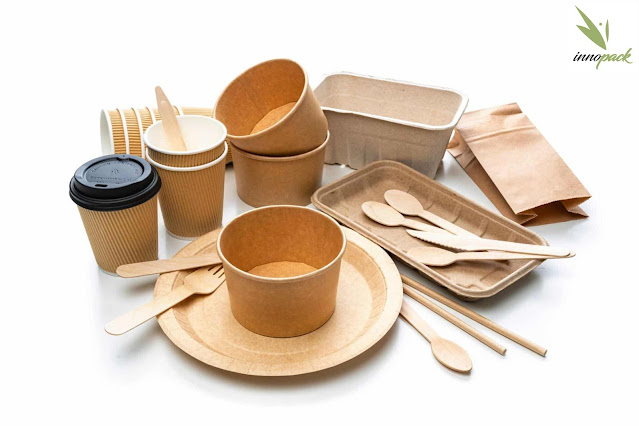Disposable Cups: Convenience Meets Environmental Responsibility
In our fast-paced world, convenience is often a top priority. This is particularly true in the food and beverage industry, where the need for quick, efficient service has led to the widespread use of disposable cups.
From bustling coffee shops to busy office buildings, disposable coffee cups are ubiquitous. However, as environmental awareness grows, the role of disposable cups is being scrutinised, leading to innovations and discussions about sustainability.
The Convenience of Disposable Cups
Disposable cups offer undeniable convenience. They are lightweight, portable, and ideal for on-the-go lifestyles. For businesses, disposable cups simplify operations, as they eliminate the need for washing and sanitising reusable cups. This is particularly advantageous in high-traffic settings where speed and efficiency are crucial.
In the era of COVID-19, disposable cups have also played a significant role in maintaining hygiene and safety. By providing a single-use option, they help minimise the risk of cross-contamination, offering peace of mind to both consumers and staff.
The Environmental Impact
Despite their convenience, traditional disposable cups have a substantial environmental footprint. Most disposable cups are made from paper lined with plastic or polystyrene, making them difficult to recycle. According to a report by the World Economic Forum, an estimated 16 billion disposable coffee cups are used globally each year, contributing to massive amounts of waste.
The production process of custom napkins Australia also has environmental implications. Manufacturing paper cups requires significant amounts of water and energy, and the plastic lining is derived from fossil fuels. When disposable cups end up in landfills, the plastic components can take hundreds of years to decompose, releasing harmful chemicals into the environment.
Innovations in Sustainable Disposable Cups
In response to growing environmental concerns, the industry is making strides towards more sustainable solutions. Here are some notable innovations:
- Compostable Cups: Made from plant-based materials like cornstarch or sugarcane, compostable cups can break down in industrial composting facilities. These cups offer a promising alternative to traditional plastic-lined cups.
- Recyclable Paper Cups: Some manufacturers are developing paper cups with water-based or plant-based linings that can be easily recycled. This innovation simplifies the recycling process and reduces waste.
- Reusable Cup Programs: Many coffee shops and businesses are encouraging the use of reusable cups by offering discounts to customers who bring their own. Some establishments have even introduced programs where customers can borrow and return reusable cups.
- Edible Cups: A more novel approach, edible cups are made from ingredients like wafer or cookie dough. These cups not only eliminate waste but also add an extra treat to the beverage experience.
The Role of Businesses and Consumers
The shift towards more sustainable disposable coffee cups requires collaboration between businesses and consumers. For businesses, this means investing in sustainable alternatives and educating customers about their benefits. It also involves rethinking supply chains and partnerships to prioritise environmentally friendly options.
Consumers, on the other hand, can make a significant impact through their choices. By opting for reusable cups or supporting businesses that use sustainable disposables, consumers can drive demand for eco-friendly products. Simple actions, such as bringing a reusable cup or properly disposing of compostable cups, contribute to a larger movement towards sustainability.
Regulatory Measures
Governments and regulatory bodies also play a crucial role in promoting sustainable practices. Some cities and countries have implemented bans or taxes on single-use plastics, including disposable cups. These measures not only reduce waste but also encourage innovation and the adoption of sustainable alternatives.
For instance, the custom napkins Australia Single-Use Plastics Directive aims to reduce the impact of certain plastic products on the environment. Similarly, several U.S. states and cities have introduced legislation to limit the use of disposable cups and promote recycling.
The Future of Disposable Cups
The future of disposable cups lies in balancing convenience with environmental responsibility. As technology advances and awareness grows, we can expect to see continued innovation in this area. The development of new materials and improved recycling methods will play a pivotal role in shaping the future of disposable cups.
Ultimately, the goal is to create a system where the convenience of disposable cups does not come at the expense of the environment. By embracing sustainable practices and making conscious choices, we can enjoy the benefits of disposable cups while minimising their impact on our planet.
Final Words
Disposable cups have become an integral part of modern life, offering convenience and practicality. However, their environmental impact cannot be ignored. Through innovation, responsible business practices, and informed consumer choices, we can move towards a more sustainable future. The evolution of disposable coffee cups is a testament to our ability to adapt and find solutions that benefit both people and the planet.




Comments
Post a Comment